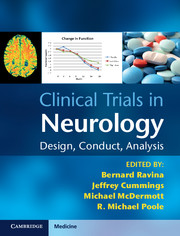18 - Evidentiary Standards for Neurological Drugs and Biologics Approval
from Section 5
Published online by Cambridge University Press: 05 May 2012
Summary
- Type
- Chapter
- Information
- Clinical Trials in NeurologyDesign, Conduct, Analysis, pp. 197 - 205Publisher: Cambridge University PressPrint publication year: 2012



